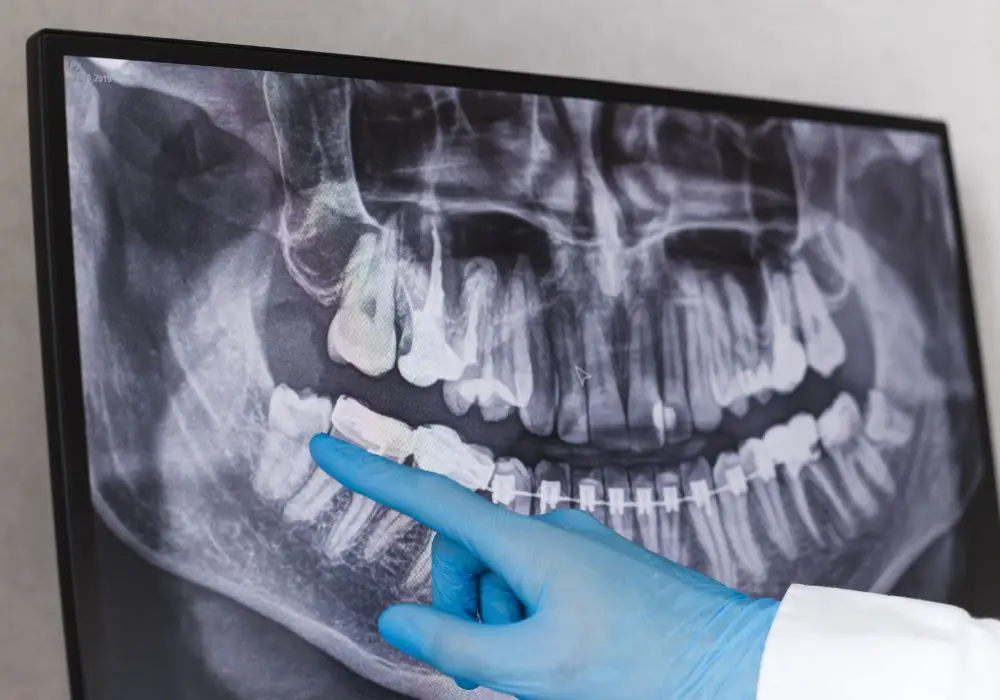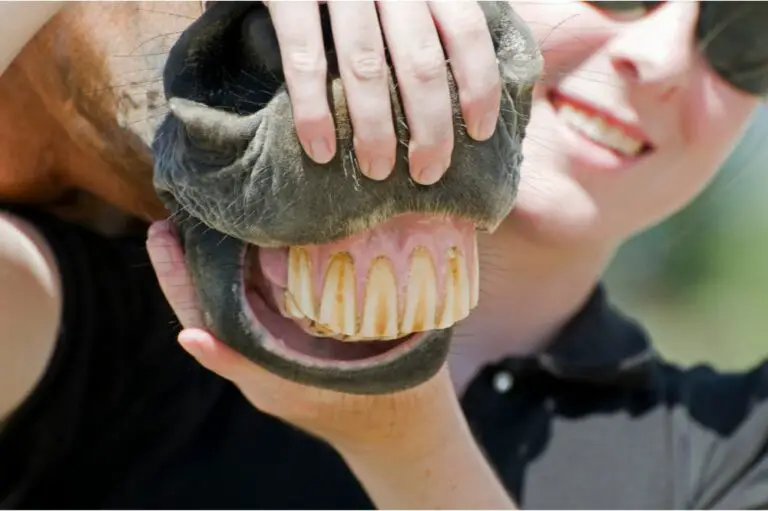Are you wondering if having four wisdom teeth is a lot? The answer to this question depends on many factors, including your age, genetics, and dental health. Most people have four wisdom teeth, one in each corner of the mouth, but some people may have fewer or none at all.
Wisdom teeth are the last set of molars to develop, usually appearing in the late teenage years or early twenties. While some people have no issues with their wisdom teeth, others may experience pain, infection, or damage to surrounding teeth. In some cases, wisdom teeth may be impacted, meaning they are unable to fully emerge from the gums. This can cause discomfort and increase the risk of infection.
Overall, whether having four wisdom teeth is a lot depends on the individual and their dental health. It’s important to consult with a dentist or oral surgeon to determine whether your wisdom teeth need to be removed or if they can be monitored for potential issues.
Understanding Wisdom Teeth

If you’re wondering whether having four wisdom teeth is a lot, you may benefit from understanding more about these teeth. Here are some key things to keep in mind:
What Are Wisdom Teeth?
Wisdom teeth are the third set of molars that typically emerge in the back of your mouth between the ages of 17 and 25. Most people have four wisdom teeth, but some people have fewer or none at all.
Why Do We Have Wisdom Teeth?
Anthropologists believe that wisdom teeth were once necessary for our ancestors, who had larger jaws and needed the extra molars to grind up tough, fibrous foods. However, as our diets have evolved over time, our jaws have become smaller, and we no longer need wisdom teeth to chew our food.
As a result, wisdom teeth are now considered vestigial organs, or body parts that no longer serve a purpose. In fact, many people have their wisdom teeth removed to prevent dental problems such as crowding, impaction, and infection.
That being said, not everyone needs to have their wisdom teeth removed. If your wisdom teeth are healthy, properly aligned, and not causing any issues, your dentist may recommend leaving them in place. However, if your wisdom teeth are causing pain, swelling, or other problems, your dentist may recommend extraction.
In summary, having four wisdom teeth is common, but not everyone has them. While wisdom teeth were once necessary for our ancestors, they are now considered vestigial organs that can cause dental problems if they are not properly managed. If you’re unsure whether you need to have your wisdom teeth removed, talk to your dentist to get personalized advice based on your unique situation.
The Number of Wisdom Teeth
Wisdom teeth are the third molars that usually appear between the ages of 17 and 25. Most people have four wisdom teeth, two on the top and two on the bottom. However, the number of wisdom teeth can vary from person to person.
Normal Number of Wisdom Teeth
As mentioned, the normal number of wisdom teeth is four. They are located at the back of the mouth and are the last teeth to emerge. Wisdom teeth can cause problems such as pain and infection if they do not have enough room to grow properly or if they grow in at an angle. In some cases, they may need to be removed.
Variations in Number of Wisdom Teeth
While four wisdom teeth are the norm, some people may have fewer or more. Some people may have only one or two wisdom teeth, while others may have up to six. However, having more than four wisdom teeth is rare and is known as supernumerary teeth.
The number of wisdom teeth a person has can also be influenced by genetics. Some people may have a family history of having fewer or more wisdom teeth than usual.
In conclusion, having four wisdom teeth is the norm, but some people may have fewer or more. If you are experiencing any problems with your wisdom teeth, it is important to consult with a dental professional to determine the best course of action.
Implications of Having Four Wisdom Teeth

If you have four wisdom teeth, you may be wondering if this is a lot. While it’s common to have four wisdom teeth, some people may have fewer or even none at all. Here are some potential implications of having four wisdom teeth, as well as some benefits.
Potential Complications
Having four wisdom teeth can increase your risk of certain dental problems. For example, if your mouth is not large enough to accommodate all four teeth, they may become impacted. This means they don’t have enough room to emerge or develop normally. Impacted wisdom teeth can cause pain, infection, and other complications.
Even if your wisdom teeth do emerge, they can still cause problems. Because they are located at the back of your mouth, they can be difficult to clean. This can lead to plaque buildup, gum disease, and tooth decay. In some cases, your dentist may recommend removing your wisdom teeth to prevent these problems from occurring.
Benefits of Having Four Wisdom Teeth
Despite the potential complications, there are some benefits to having four wisdom teeth. For example, if you have healthy wisdom teeth, they can help you chew and digest food more effectively. They can also help maintain the structure of your jaw and prevent your other teeth from shifting out of place.
In addition, some people may not experience any problems with their wisdom teeth. If your wisdom teeth emerge normally and are easy to clean, you may not need to have them removed. However, it’s important to monitor them closely and visit your dentist regularly to ensure they remain healthy.
Overall, having four wisdom teeth is not necessarily a cause for concern. However, it’s important to be aware of the potential complications and benefits so you can make informed decisions about your dental health.
Procedure for Removing Wisdom Teeth
If you are experiencing pain or discomfort in the back of your mouth, your dentist may recommend wisdom teeth removal. Here is what you can expect during the procedure.
When Is Removal Necessary?
Wisdom teeth, also known as third molars, are located at the back of your mouth and usually emerge in your late teens or early twenties. In some cases, these teeth can become impacted, meaning they do not have enough room to grow properly. This can cause pain, infection, and other dental problems. In such cases, your dentist may recommend removal.
What Does the Procedure Involve?
The procedure for removing wisdom teeth typically involves the following steps:
- Anesthesia: Before the procedure begins, your dentist will administer anesthesia to numb the area around the tooth. You may also receive sedation to help you relax during the procedure.
- Extraction: Once the anesthesia has taken effect, your dentist will make an incision in the gum tissue to access the tooth. They will then remove the tooth and any surrounding tissue.
- Closure: After the tooth has been removed, your dentist will clean the area and close the incision with stitches. They may also place gauze over the area to help control bleeding.
- Recovery: You will be given instructions on how to care for the area after the procedure. This may include applying ice packs to reduce swelling, avoiding certain foods, and taking pain medication as needed.
Overall, the procedure for removing wisdom teeth is a common and relatively straightforward process. However, it is important to follow your dentist’s instructions for aftercare to ensure a smooth recovery.
Recovery and Aftercare

Post-Surgery Care
After having your wisdom teeth removed, it is important to take proper care of your mouth to ensure a smooth recovery. Recovery times can vary, but typically take between 3 days to 2 weeks. During this time, it is recommended to avoid strenuous activities and to rest as much as possible. Here are some tips for post-surgery care:
- Bite down gently on the gauze pad placed over the extraction site to reduce bleeding and allow a blood clot to form.
- Apply an ice pack to your cheek to reduce swelling and pain.
- Take any prescribed painkillers as directed by your dentist or oral surgeon.
- Avoid smoking, drinking through a straw, or spitting, as these actions can dislodge the blood clot and delay healing.
- Eat soft foods and drink plenty of fluids to stay hydrated.
Long-Term Impact of Removal
You may be wondering if removing your wisdom teeth will have any long-term impact on your oral health. In most cases, removing your wisdom teeth will not have any negative effects on your oral health. In fact, removing them can prevent future problems such as tooth decay, gum disease, and overcrowding.
However, in rare cases, removing wisdom teeth can cause complications such as nerve damage, infection, or dry socket. It is important to follow your dentist’s aftercare instructions and attend any necessary follow-up appointments to ensure proper healing.
Overall, while having your wisdom teeth removed may seem daunting, following proper post-surgery care and attending follow-up appointments can ensure a smooth recovery and prevent future oral health problems.
Frequently Asked Questions
What is the average number of wisdom teeth a person has?
Most people have four wisdom teeth, two on the top and two on the bottom. However, some people may have fewer or more than four wisdom teeth.
What are the benefits of keeping all four wisdom teeth?
If your wisdom teeth are healthy, fully erupted, and positioned correctly, there may be no need to remove them. Keeping all four wisdom teeth can help you chew your food properly and maintain the alignment of your other teeth.
What is the recovery time for removing all four wisdom teeth?
The recovery time for removing all four wisdom teeth varies for each person. It may take a few days to a few weeks to fully recover. You may experience some swelling, pain, and discomfort after the surgery, but your dentist or oral surgeon will provide you with instructions on how to manage these symptoms.
Is it safe to remove all four wisdom teeth at once?
Yes, it is safe to remove all four wisdom teeth at once. Your dentist or oral surgeon will evaluate your individual case and determine the best course of action for you. They will also provide you with instructions on how to prepare for the surgery and how to take care of your mouth after the surgery.
Should I get two or four wisdom teeth removed?
Whether you need to get two or four wisdom teeth removed depends on your individual case. Your dentist or oral surgeon will evaluate your wisdom teeth and determine the best course of action for you.
How common is it to have supernumerary wisdom teeth?
Supernumerary wisdom teeth, or extra wisdom teeth, are rare but can occur. If you have supernumerary wisdom teeth, your dentist or oral surgeon will evaluate your individual case and determine the best course of action for you.







